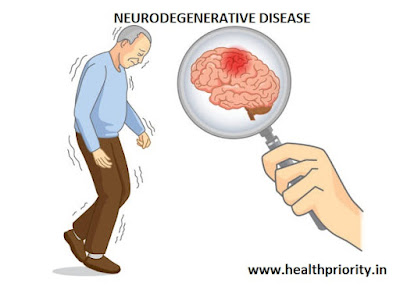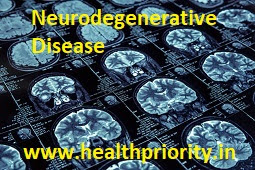Neurodegenerative diseases are a group of conditions that cause progressive deterioration or death of nerve cells in the brain and spinal cord. These conditions can lead to problems with movement, memory, and cognitive function. Some of the most well-known neurodegenerative diseases include Alzheimer's disease, Parkinson's disease, and Huntington's disease.
 |
| Neurodegenerative diseases |
Alzheimer's disease is the most common form of dementia, and it affects millions of people worldwide. It is characterized by a gradual loss of memory and cognitive function, as well as changes in behavior and mood. The exact cause of Alzheimer's disease is not known, but it is believed to be a combination of genetic, environmental, and lifestyle factors. There is currently no cure for Alzheimer's disease, and treatment options are primarily focused on managing symptoms.
Parkinson's disease is a neurodegenerative disorder that affects movement. The condition is characterized by tremors, stiffness, and difficulty with coordination. It is caused by the degeneration of dopamine-producing cells in the brain. There is no cure for Parkinson's disease, but treatment options include medications, surgery, and physical therapy to help manage symptoms.
 |
| Neurodegenerative diseases |
Huntington's disease is an inherited neurodegenerative disorder that affects both cognitive and motor function. It is caused by a genetic mutation that leads to the production of an abnormal protein in the brain. Symptoms typically begin in adulthood and include movement disorders, cognitive decline, and behavioral changes. There is no cure for Huntington's disease, but treatment options include medications to manage symptoms and support for individuals and families affected by the condition.
Other neurodegenerative diseases include Amyotrophic lateral sclerosis (ALS) commonly known as Lou Gehrig's disease, a rare disease that affects nerve cells in the brain and spinal cord that control muscle movement. Multiple Sclerosis (MS) is a chronic, progressive condition that affects the central nervous system, specifically the nerve fibers that transmit information between the brain and the rest of the body.
 |
| Neurodegenerative diseases |
All these neurodegenerative diseases are progressive and ultimately debilitating, and there is currently no cure. However, recent research has yielded new understanding of the mechanisms underlying these conditions, and this has led to the development of new treatments and therapies that may help slow the progression of the disease or improve quality of life for those living with it.
Prevention and management of neurodegenerative disease also important, many of these are linked to lifestyle habits and chronic conditions. Eating a healthy diet, getting regular exercise, avoiding smoking and excessive alcohol consumption, and managing conditions such as high blood pressure and diabetes can help reduce the risk of developing a neurodegenerative disease.
 |
| Neurodegenerative diseases |
In conclusion, neurodegenerative diseases are a group of debilitating conditions that cause progressive deterioration of nerve cells in the brain and spinal cord. While there is currently no cure, research is ongoing and new treatments are being developed to help manage symptoms and improve quality of life for those living with these diseases. Preventive measures such as healthy lifestyle choices can also play a role in reducing the risk of developing a neurodegenerative disease.

ConversionConversion EmoticonEmoticon